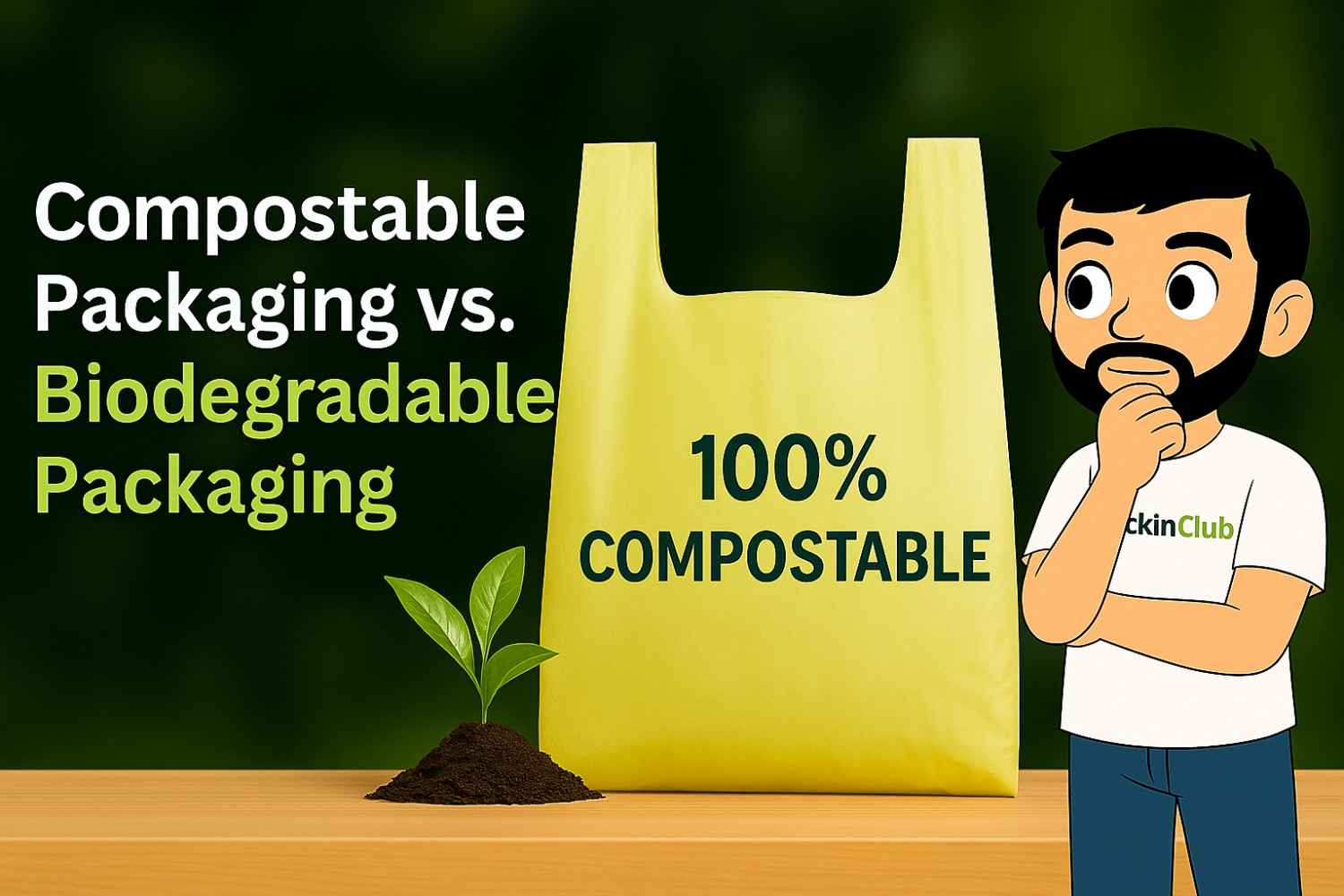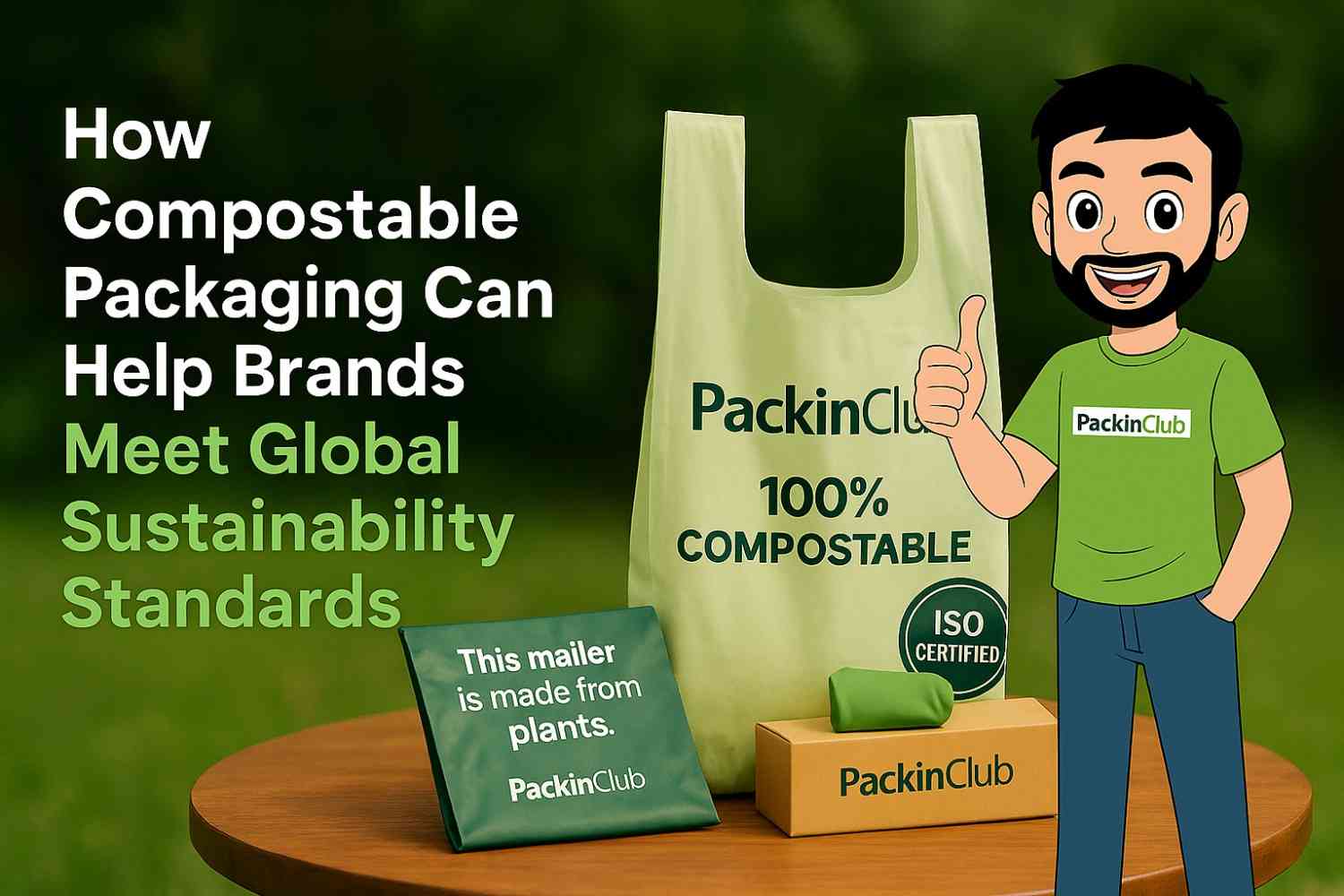India’s food delivery industry is booming, with platforms like Zomato and Swiggy serving millions of orders daily. However, the excessive use of plastic packaging—especially plastic pouches for hot food—poses serious environmental and health risks. As businesses look for sustainable and legally compliant alternatives, compostable packaging emerges as the best solution.
If you’re a restaurant, cloud kitchen, or food delivery business, here’s why switching to compostable packaging is essential.
The Problem with Plastic Packaging in Food Delivery
Health Risks of Plastic Packaging
Many restaurants still pack hot food in plastic pouches or containers that can leach harmful chemicals into food. When exposed to heat, plastics release toxins that may lead to long-term health issues.
Solution: Compostable packaging is made from plant-based materials and contains no harmful chemicals, ensuring food safety.
Environmental Damage Caused by Plastic Waste
Over 3.5 million tonnes of plastic waste is generated in India annually, and food delivery contributes significantly. Single-use plastic takes hundreds of years to decompose, polluting landfills and oceans.
Solution: Compostable packaging decomposes in 3-6 months, leaving no toxic residue.
Government Regulations on Plastic Ban
With the Plastic Waste Management Rules and CPCB (Central Pollution Control Board) guidelines, businesses using banned plastic packaging risk fines and legal action.
Solution: Switching to CPCB and CIPET-certified compostable packaging keeps businesses compliant.
Best Compostable Packaging Solutions for Food Delivery
1. Compostable Food Containers
Ideal for curries, rice, and gravies, these leak-proof, grease-resistant, and microwave-safe containers ensure food stays fresh and safe.
2. Compostable Pouches
A perfect alternative to plastic pouches, these breathable, heat-resistant, and biodegradable pouches are ideal for packing snacks and dry food items.
3. Compostable Cutlery & Straws
For beverages and takeout, compostable spoons, forks, knives, and straws made from cornstarch or bagasse provide a zero-waste alternative.
4. Compostable Delivery Bags
Unlike plastic delivery bags, compostable bags are strong, water-resistant, and decompose naturally, making them ideal for Swiggy and Zomato restaurant partners.
Explore compostable packaging options from Packin Club.
How to Transition to Compostable Packaging
Step 1: Identify Your Packaging Needs
Assess which compostable materials suit your menu—containers for curries, pouches for snacks, or bags for deliveries.
Step 2: Source Certified Compostable Packaging
Ensure packaging is CPCB and CIPET-certified to meet government regulations and customer expectations.
Step 3: Educate Customers & Staff
Train staff to use compostable packaging and inform customers about your eco-friendly initiative through branding and social media.
Get CPCB-certified compostable packaging from Packin Club.
Conclusion
For food businesses in India, compostable packaging is no longer optional—it’s necessary. It ensures food safety, legal compliance, and environmental sustainability while improving customer perception.
Ready to make the switch?
Order compostable packaging from Packin Club now!
Frequently Asked Questions (FAQs)
1. Is compostable packaging durable for food delivery?
Yes, compostable packaging is strong, grease-resistant, and leak-proof, making it ideal for hot and cold food.
2. How does compostable packaging impact food quality?
It keeps food fresh, safe, and free from toxic chemicals, unlike plastic.
3. Is compostable packaging expensive?
While it may cost slightly more upfront, it prevents plastic fines and enhances brand reputation, making it cost-effective.
4. Can Swiggy and Zomato restaurant partners use compostable packaging?
Yes, many restaurants are switching to compostable alternatives to meet sustainability goals and avoid plastic-related legal issues.
5. Where can I buy compostable packaging for my food business?
Packin Club provides CPCB and CIPET-certified compostable packaging tailored for Indian food delivery services.





